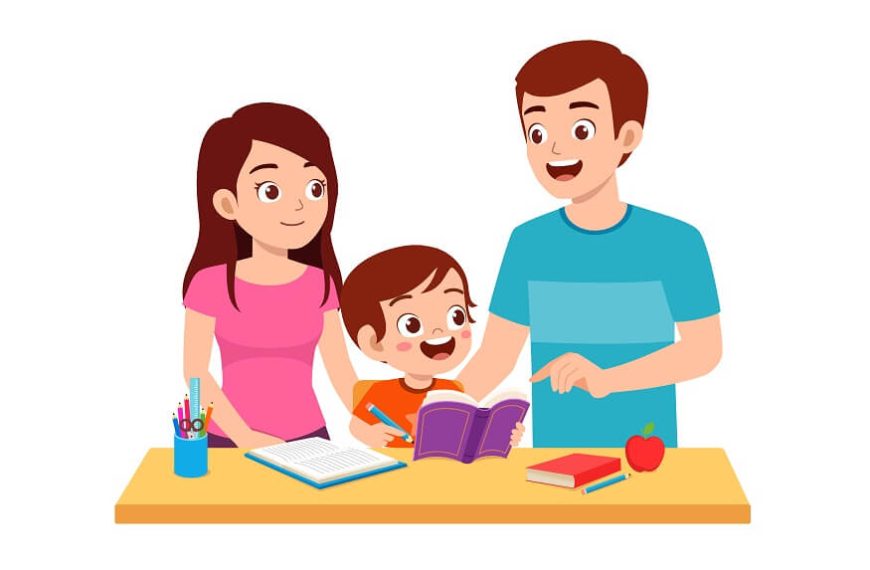Toddlers will have tantrums and most parents would kill to find a way to make their toddler listen to them in the middle of their outbursts. Life would be so much more comfortable if one didn’t have to resort to yelling to calm a defiant and screaming toddler. The fact is that the aggression, defiance, mood swings and screaming that toddlers show are signs of the healthy development of their brain.
If you are wondering how to make a toddler listen to parents and not really succeeding in it, you can console yourself with the fact that it’s just a toddler’s desire for independence. Their behaviour is usually driven by impulses rather than reason and logic. They need to be guided and encouraged to follow instructions. In some cases, yelling becomes a habit and usually it can make behaviour problems worse. It becomes a vicious cycle as yelling leads to bad behaviour which in turn leads to more yelling.
Why A Two Year Old Doesn’t Listen
It is considered normal for toddlers to ignore instructions but there’s usually a good reason for it.
- You may be giving too many instructions together or repeating yourself. A toddler has a short attention span so short and crisp instructions work the best as toddlers tend to ignore you if you give them multiple and elaborate instructions.
- When a toddler is doing something that interests them, they may get defiant if they are interrupted, especially if they are watching their favourite show or playing their favourite game.
- Your tone may be wrong as a lot depends on how you tell your child to do something. is very important. If you are harsh with your tone they might decide not to listen to you. Similarly, pleading with them or being extra sweet all the time doesn’t work too well either.
- If you are in a habit of being constantly critical, a child picks this up in your Even if you keep commenting and asking them why they don’t listen to you, they will stop listening to you.
- When your actions and behaviour are inconsistent, your toddler will take you for granted and stop listening to you. It’s okay to take away a child’s privileges for a short time when they don’t listen. But if you threaten to take away their privileges and then do nothing about it, they soon learn that there are no consequences and stop listening.
How to Make Toddlers Listen Without Yelling
When your toddler’s behaviour crosses a limit, it’s important to know how to deal with toddlers who don’t listen. Effective communication through effective parenting techniques and being a good role model are the ways to handle erratic toddler behaviours. Here are a few things you could try to get your toddler to listen to you.
- Read to Them
- Play Listening Games
- Get Down to Their Eye Level
- Spend Time Together
- Always Speak Calmly
- Give Simple and Precise Instructions
- Don’t Linger After Giving Instructions
- Reinforce Your Instructions
- Give Advance Notice
- Give Realistic Instructions
- Be Creative
- Give Information
- Listen to Your Toddler
Reading stories aloud to your toddler in an animated way by making animal sounds and stressing certain words to grab their attention is a great way of encouraging them to listen. It not only gets their attention, it also promotes vocabulary and language development.
Listening games are another way to teach your toddler to listen. You could play the whisper game or sound hunt to encourage active listening.
Kneel next to them when you are speaking to them and want them to listen to you. That way, you will have eye contact with them and will get their full attention so they are more likely to listen to you. It also makes them feel more connected to you as they know they have your full attention.
Your toddler is always observing you and imitates everything you do. If you expect them to listen to you you need to model that behaviour. When you eat together or play together. Having meals together or performing activities together is a good way to show them your interactions with others in the family. They will observe how you communicate with others and learn that behaviour.
A tantrum by your toddler can really put your teeth on edge, but it’s important to always talk to them in a calm tone. Toddlers tend to have extreme emotions and if you show anger and frustration it will only aggravate the situation. When you speak to them calmly, it calms them down and they listen to what you have to say.
Toddlers have a short attention span so it’s wise to keep your instructions short and clear rather than giving a list of instructions. Just asking them to clear their toys is way more effective than asking them to clear their toys, switch off the television and go for their bath.
When you ask your toddler to do something, you need to ensure they do it quickly. If you have asked them to put away their toys and they show no sign of doing it, you can guide them towards the toy cupboard. Your toddler learns that instructions have to be followed through quickly.
Toddlers can be both stubborn and challenging in their behaviour. If they decide not to listen to you, they will not. You need to reinforce your instructions subtly or directly. If you want them to finish their food you can tell them to finish fast so that they can go out and play.
It’s better to give them advance notice or you may have your toddler throw a tantrum when it’s time to leave the park. You could tell them that they can play for 10 minutes more and then it would be time to go home. Although they don’t really understand the concept of time, they are prepared when it’s actually time to go home.
Toys are a large part of a toddler’s life so when you ask them to put them away to do routine things like eating and sleeping, they might refuse. It’s better to tell them to put their toys away for a while and they can play with them later. Such instructions are both realistic and doable for a toddler. Let them know there’s a time limit to your instructions and their actions.
Some parents feel that yelling is an effective way to make their child listen to them. This doesn’t always work and you may have to use creative ways to motivate them. You could play a relevant song when you want them to put their toys away.
Toddlers who are a bit older might want to know why you have asked them to do something. Giving them the reason might motivate them to do it. If they are to go for a playdate and you ask them to clear up their toys, you can tell them that they have to clear up their toys so they can leave for their play date. This might motivate them to listen to you.
By listening to your toddler attentively, you are telling them that they are worthy of attention and what they say matters. This helps them to learn that they should pay attention to what you say.
Toddlers often ignore what you say because they have short attention spans or are busy with something else. It’s important to know how to deal with toddlers who don’t listen. Giving them clear and realistic instructions, speaking calmly, and reinforcing instructions can be very helpful. For more information on this, you could visit the EuroKids website and get some more helpful tips.
















